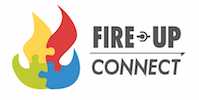Whether you work in fund development for a charity, or you are investing your own wealth, Planned Giving is something you are likely not paying enough attention to. It can be an important component of your or your donors' legacy plan without impacting lifestyle and current obligations, with significant tax benefits to heirs and leaving a lasting impact to charity.
You Don't Have to Write a Check to Give
It’s estimated that more than 90% of American adults donate to charity, but only 6% leave a bequest in their will. With an incredible $30 trillion in wealth expected to transfer from Baby Boomers to the next generation, that’s a staggering amount for charities to not tap. Americans are generous – they just need to know what options they have. And it’s worth noting that the ultra wealthy, upper and middle class all have something in common: the vast majority of their wealth isn’t accessible by writing a check.
While a few prominent wealthy people such as Bill Gates have announced they intend for all of their wealth to benefit charities and not their children, a 2015 study showed that was very atypical.
Of the millionaires surveyed, more than half said they plan to leave most of their inheritance to their children and not to charity.* While 20% said they plan to leave nothing at all to charities and two-thirds plan on gifting less than 10% of their estate to a charity.
In my experience, everyone has a different heart around philanthropy. Some have not considered it at all. Yet, when I’ve shown tax-break eager investors how charitable giving can benefit them, they often become personally invested in their charity of choice and ultimately give more than they first intended.
Why is Planned Giving Not Always Considered
Because it involves a gift to charity upon your death, you may find that even your favorite charity is reluctant to bring it up. I’ve known non-profits who felt uncomfortable asking even their own board members if they would consider a planned gift to the nonprofit they serve and are responsible for.
With the “greatest wealth transfer in history,” as the passing of the Baby Boomer generation is often called, charities would do well to reconsider their thinking. People give because they want to - whether it’s from a more self-motivated reason or a charitable one.
And Planned Giving could be considered an important component of your legacy plan. It may not impact your current lifestyle or obligations, and often has significant tax benefits for your heirs.
Why should you consider Planned Giving?
A Planned Gift is a contribution arranged in the present and allocated at a future date. It is, as the name says, planned ahead. The gift could be realized in the same calendar year, or many years later.
According to the Federal Reserve, only a fraction of household assets – approximately 1% – are held in a form accessible by writing a check. It is certainly easier for the fundraiser to ignore non-cash assets and simply concentrate on the 1% of financial assets that are held in cash. But this results in a tremendous lost opportunity. The fundraiser will always be missing out on tapping into the other 99% of wealth. Without a change in perspective, the truly impactful gifts that come from non-cash assets will never be realized. And as a donor, you can amplify your ability to leave a legacy.
If, as a potential donor, you are saying I wish I could do more, but…
- I have to save for retirement
- I am on a fixed income
- I don’t have the cash right now
- Everything is tied up in the business/farm
- I have it set aside for the next generation
- I only have so much money and I might live a long time
Etc., etc., etc…
We are asking you to consider: What if there were a way you could do both?
What Types of Non-Cash Gifts are There?
- Appreciated Securities – stocks, bonds, mutual funds, etc
- Real Estate – land, homes, or other property
- Business Interests – ownership in closely held businesses
- Personal Property – royalties, copyrights, patents, precious metals like gold
- Restricted Securities – publicly traded securities that may have sale restrictions
- Loan Notes – money owed to you through loan notes
- Estate Gifts – proceeds from wills, trusts, or life insurance policies
- Retirement Plans – 401K, IRAs, or pension plans
The Planned Giving process can go from the very simple to the very complex.
We specialize in charitable giving as a component of our wealth management and legacy planning through inter-disciplinary Advanced Tax Planning, Actuarial Design, and Insurance Architecture strategies.
The many moving parts of your estate – business, heirs, real estate, philanthropy, investments – need to be orchestrated in concert to maximize your legacy and reduce your loss to estate taxes. This requires significant inter-disciplinary expertise to realize the benefits and avoid the pitfalls. Planning Network Partners is dedicated to examining this and other opportunities as part of a larger picture of your whole financial health.
Contact Us today for expert assistance.
*https://www.cnbc.com/2015/05/06/millionaire-kids-to-inherit-most-of-their-parents-fortunes.html


